Sierra Leone
Welcome to Sierra Leone
Sierra Leone is a country of remarkable natural beauty and cultural depth. Its geography ranges from palm-fringed Atlantic beaches to dense tropical rainforests and rolling hills inland. The capital city, Freetown, is a bustling hub with a mix of colonial architecture and modern life, serving as the gateway for most visitors. Despite its past challenges, including a civil war that ended in 2002, Sierra Leone has made significant progress and is now emerging as a promising travel destination in West Africa. The population is youthful and diverse, with a rich tapestry of ethnic groups and languages that contribute to the country's vibrant cultural scene. The local people, known as Salone, are known for their warmth, hospitality, and resilience. Visitors can immerse themselves in traditional music, dance, and festivals that reflect Sierra Leone’s rich heritage.
1.
Stunning Natural Attractions
Sierra Leone boasts some of Africa’s most beautiful and unspoiled beaches, such as those on Banana Island and River Number Two Beach. The country’s national parks, including Gola Rainforest National Park and Tiwai Island Wildlife Sanctuary, offer excellent opportunities for hiking, bird watching, and encountering rare wildlife. The lush tropical interior is a paradise for nature lovers and adventurers alike.
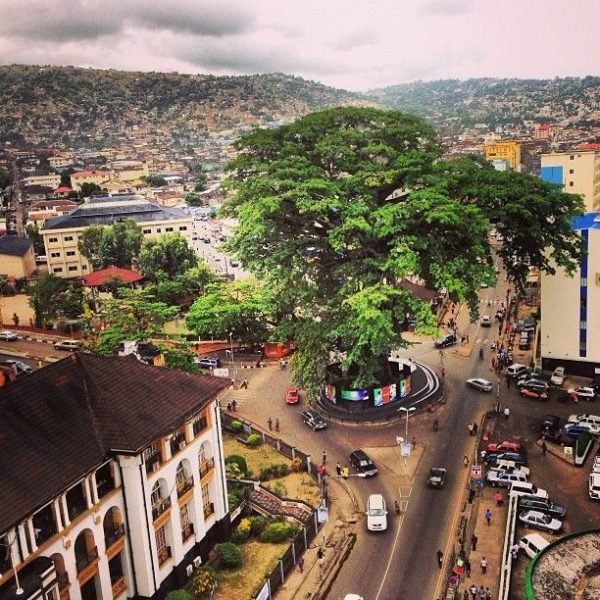
2.
Rich Cultural Experience
The culture of Sierra Leone is a vibrant mix of traditions and modern influences. Visitors can experience the rhythmic beat of the gumbe drum, taste delicious local cuisine, and learn about the country’s history of resilience and freedom. The friendly locals are eager to share their stories and welcome travelers with open arms, making every visit deeply personal and memorable.
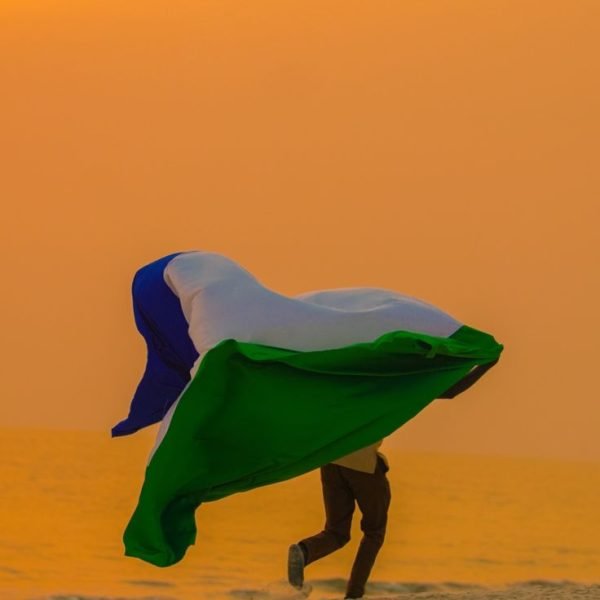
Planning Your Trip
Visa Information
Most travelers to Sierra Leone will require a visa to enter the country. It is advisable to check the latest visa requirements with the nearest Sierra Leonean embassy or consulate before traveling. Many visitors can apply for a visa online or upon arrival, but confirming this in advance will ensure a smooth entry process.
Best Time to Visit
The ideal time to visit Sierra Leone is during the dry season, which runs from November to April. During these months, the weather is warm and sunny, perfect for beach outings, wildlife exploration, and cultural events. The rainy season, from May to October, brings heavy downpours that can make travel more challenging, especially on rural roads.
Getting To and Around
Getting to Sierra Leone
Freetown International Airport (Lungi Airport) is the main international gateway to Sierra Leone. It is well connected to major cities in Africa and some international hubs. From the airport, travelers can reach Freetown by ferry, speedboat, or road transfer, each offering scenic views of the surrounding waters.
Getting Around
Travel within Sierra Leone can be an adventure in itself. While main roads in Freetown are generally navigable, many rural roads can be rough and challenging, especially during the rainy season. Taxis and minibuses are common in urban areas, but for exploring national parks or remote villages, hiring a local guide and driver is recommended. Avoid nighttime travel due to road safety concerns.
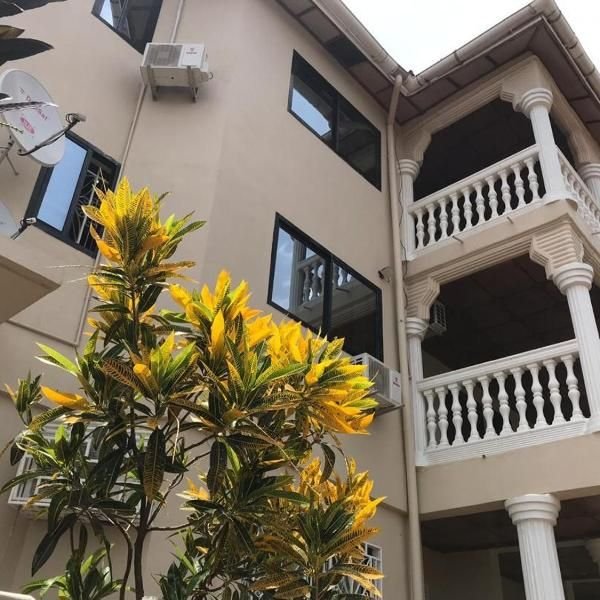
Accommodation
Sierra Leone offers a range of accommodation options that cater to different budgets and preferences, though travelers should be aware that lodging can be relatively expensive compared to other West African countries. The capital, Freetown, is the primary hub for accommodations, with options ranging from budget guesthouses to luxury hotels.
Accommodation Options
In Freetown, you will find several well-regarded hotels such as the New Brookfields Hotel and the Home Suites Boutique Hotel, both offering clean, comfortable rooms with amenities like free WiFi, on-site restaurants, and convenient locations near the city center or airport. The New Brookfields Hotel is praised for its welcoming staff and excellent breakfast variety, while Home Suites Boutique Hotel features spacious rooms and a gym, making it a good choice for both leisure and business travelers.
For those seeking luxury, the Radisson Blu Mammy Yoko Hotel stands out with upscale facilities including pools, restaurants, and modern comforts. Other notable luxury options include Africa Waka Waka Resort in Lungi and The Hub Hotel in Freetown, which provide high-end services and comfortable stays.
If you prefer a more relaxed beachside experience, the Freetown Peninsula offers several resorts and guesthouses close to the ocean. River Number 2 Beach is a popular community-run spot where visitors can stay in basic but charming guesthouses with direct beach access. Prices here can be negotiated, with rooms often around $40 to $60 per night, and camping options available for about $15 per night. Keep in mind that weekends at River Number 2 can be lively with music and parties lasting late into the night.
Nearby, Cockle Point Resort offers colorful, clean rooms for about $40 per night, combining beach access with proximity to a lagoon for a tranquil atmosphere. Tokeh Beach is another top choice for pristine white sands and upscale resorts like The Place Resort, where rooms start around $100 per night. This resort boasts amenities such as a swimming pool, an on-site restaurant with excellent seafood, and reliable WiFi.
For a more secluded getaway, Banana Island is accessible only by boat and features simple bungalows at Dalton’s Banana Guesthouse. This is an ideal spot for travelers seeking solitude, hiking, and fresh seafood in a peaceful island setting.
Overall, while budget accommodation in Sierra Leone is limited, especially in Freetown where prices under $50 per night are rare, the country offers a variety of mid-range and luxury options that provide comfort and a chance to experience local hospitality.
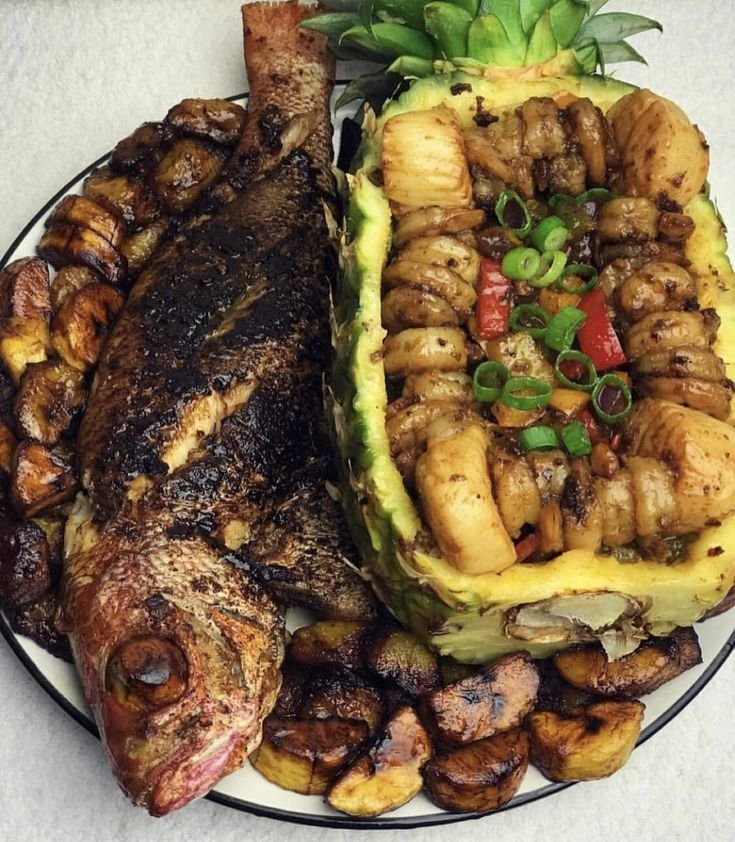
Food and Drink
Sierra Leonean cuisine is a flavorful reflection of its cultural diversity and coastal geography, with an emphasis on fresh seafood, hearty stews, and vibrant spices. Food is an integral part of the social fabric, and sharing meals is a way to connect with locals and experience the country’s traditions firsthand.
Staple ingredients include rice, cassava, yams, palm oil, and fresh fish, often combined with vegetables and spices to create rich, satisfying dishes. One of the most popular dishes is “groundnut stew,” a savory peanut-based sauce served over rice or fufu (a dough-like side made from cassava or plantains). Another favorite is “jollof rice,” a West African classic cooked with tomatoes, onions, and spices, often accompanied by grilled fish or chicken.
Seafood lovers will delight in the abundance of fresh catches available along the coast. Grilled lobster, crab, and fish are commonly served, especially in beachside restaurants and resorts. The Place Resort at Tokeh Beach is renowned for its char-grilled lobster and excellent wine list, making it a must-visit for gourmets.
Street food is widely available and offers an authentic taste of local flavors. Popular snacks include “akara” (fried bean cakes), “puff-puff” (sweet fried dough balls), and “kebabs” made from spiced meat or fish. These are perfect for a quick bite while exploring markets or beaches.
For beverages, Sierra Leoneans enjoy palm wine, a traditional alcoholic drink tapped from palm trees, as well as locally brewed beers. Soft drinks, fresh fruit juices, and coconut water are also commonly consumed to beat the tropical heat.
Dining in Sierra Leone can range from casual beach shacks to more formal hotel restaurants. Many accommodations offer on-site dining with menus featuring both local and international dishes, catering to diverse tastes. Meals are often accompanied by lively music and a warm atmosphere, enhancing the overall experience.
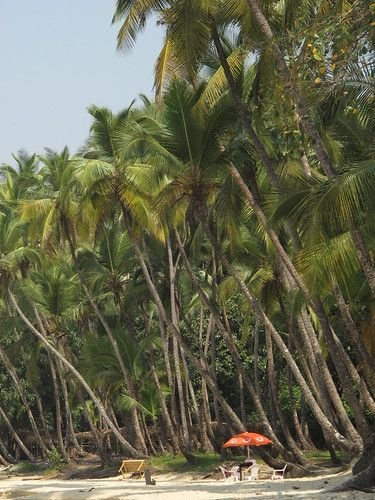
Must-See Attractions
Sierra Leone is a treasure trove of natural beauty, history, and culture, offering visitors a variety of must-see attractions that showcase its unique character.
- Tacugama Chimpanzee Sanctuary
Located about 40 minutes from Freetown, Tacugama Chimpanzee Sanctuary is one of Sierra Leone’s top wildlife attractions. The sanctuary cares for over 120 rescued chimpanzees, many of which are rehabilitated with the goal of returning them to the wild. Visitors can take guided tours through the lush forest reserve to observe these intelligent primates in a naturalistic environment. The sanctuary also runs educational programs and conservation initiatives, making it a meaningful stop for animal lovers and eco-conscious travelers alike. - Bunce Island
Bunce Island is a small but historically significant island situated in the Sierra Leone River. It was a major British slave trading post in the 18th century and offers a poignant glimpse into the transatlantic slave trade era. Today, visitors can explore the ruins of the fort and learn about the island’s dark past through guided tours. The site is both a powerful historical landmark and a reminder of resilience. - Freetown and the Cotton Tree
The capital city, Freetown, is vibrant and full of life, with bustling markets, colonial architecture, and cultural landmarks. The iconic Cotton Tree, once a towering symbol of freedom where freed slaves gathered in 1792, remains a central point of interest despite recent damage. Exploring Freetown’s Big Market offers an immersive experience of local commerce and daily life, while the Sierra Leone National Museum provides insights into the country’s rich heritage. - River Number Two and Bureh Beach
These two beaches on the Freetown Peninsula are among the most popular for relaxation and water activities. River Number Two Beach is known for its lively atmosphere, beach bars, and music, making it a favorite weekend spot for locals and tourists. Bureh Beach, slightly quieter, offers excellent opportunities for swimming, surfing, and enjoying fresh seafood at nearby resorts. - Outamba-Kilimi National Park
For wildlife enthusiasts, Outamba-Kilimi National Park in northern Sierra Leone is a must-visit. The park’s diverse ecosystems include woodlands, savannahs, and riverine forests, home to forest elephants, chimpanzees, hippos, buffaloes, and even elusive leopards. Visitors can explore the park on foot or by canoe, accompanied by knowledgeable rangers who provide intimate wildlife encounters away from crowded tourist trails. - Tiwai Island Wildlife Sanctuary
Situated on the Moa River, Tiwai Island is a biodiversity hotspot with dense rainforests and abundant wildlife, including rare primates and over 135 bird species. The sanctuary offers eco-lodges for overnight stays and guided tours, making it perfect for nature lovers seeking tranquility and adventure. - Wara Wara Mountains
For hikers and outdoor enthusiasts, the Wara Wara Mountains provide stunning panoramic views and lush greenery. Trails wind through forests rich in flora and fauna, offering opportunities to spot monkeys, exotic birds, and other wildlife. The mountains are less frequented by tourists, providing a peaceful escape into Sierra Leone’s natural splendor.
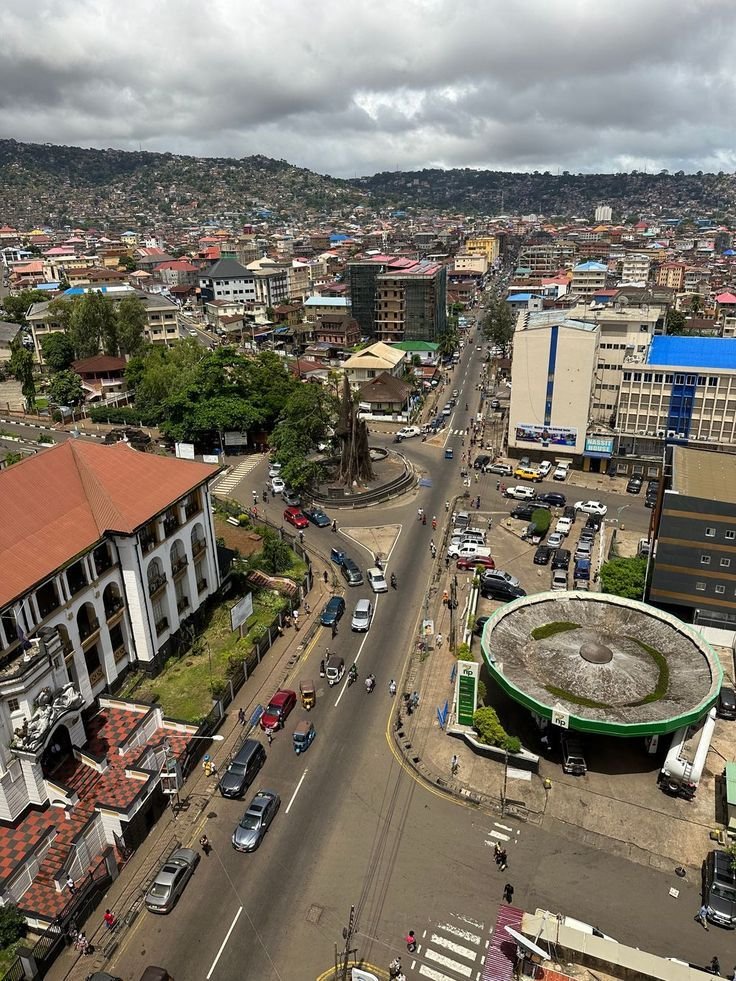
Must-Do Activities
Sierra Leone’s diverse landscapes and vibrant culture present a wealth of activities that cater to all types of travelers, from adventure seekers to culture enthusiasts.
- Chimpanzee Watching at Tacugama Sanctuary
Joining a guided tour at Tacugama Sanctuary is a highlight for many visitors. The tours include educational talks about chimpanzee conservation and the chance to see these fascinating animals up close. For an immersive experience, consider staying overnight in the sanctuary’s eco-lodges and participate in forest hikes and yoga retreats offered on site. - Beach Hopping and Water Sports
Sierra Leone’s coastline is dotted with pristine beaches perfect for swimming, sunbathing, and surfing. Bureh Beach is popular among surfers for its consistent waves, while River Number Two Beach offers a lively social scene with beach bars and music. Visitors can also enjoy kayaking, snorkeling, and boat trips to nearby islands like Banana Island, known for its crystal-clear waters and peaceful atmosphere. - Explore Freetown’s Markets and History
Spend time wandering through Freetown’s Big Market, one of the largest in West Africa, where you can shop for spices, fabrics, crafts, and fresh produce. Negotiating prices is part of the fun here. History buffs should visit the Sierra Leone National Museum and the site of the Cotton Tree to gain insight into the country’s past and its journey to freedom. - Hiking and Trekking
Sierra Leone offers excellent hiking opportunities, especially in the Wara Wara Mountains and the Loma Mountains, home to Mount Bintumani, the highest peak in West Africa. Trekking through these areas provides breathtaking views and encounters with wildlife. Guided hikes can be arranged to explore remote trails and learn about local flora and fauna. - Wildlife Safaris in Outamba-Kilimi National Park
Unlike traditional safari parks, Outamba-Kilimi offers walking and canoe safaris, allowing visitors to experience wildlife in a more intimate and eco-friendly way. Spot elephants, hippos, chimpanzees, and a variety of birds while learning about ongoing conservation efforts from local rangers. - Visit Historical Sites
Beyond Bunce Island, Sierra Leone has several historical sites worth exploring, including colonial-era buildings in Freetown and the National Railway Museum. These sites provide context to Sierra Leone’s complex history and cultural evolution. - Cultural Festivals and Local Experiences
Timing your visit to coincide with local festivals offers a deep dive into Sierra Leone’s vibrant traditions. Music, dance, and colorful ceremonies celebrate the country’s heritage and community spirit. Engaging with locals through village visits or workshops in crafts and cooking enriches the travel experience. - Volunteer and Eco-Tourism Opportunities
For travelers interested in giving back, Sierra Leone has numerous volunteer programs focused on wildlife conservation, education, and community development. Participating in these initiatives allows for meaningful interaction with locals and a chance to contribute positively to the country.
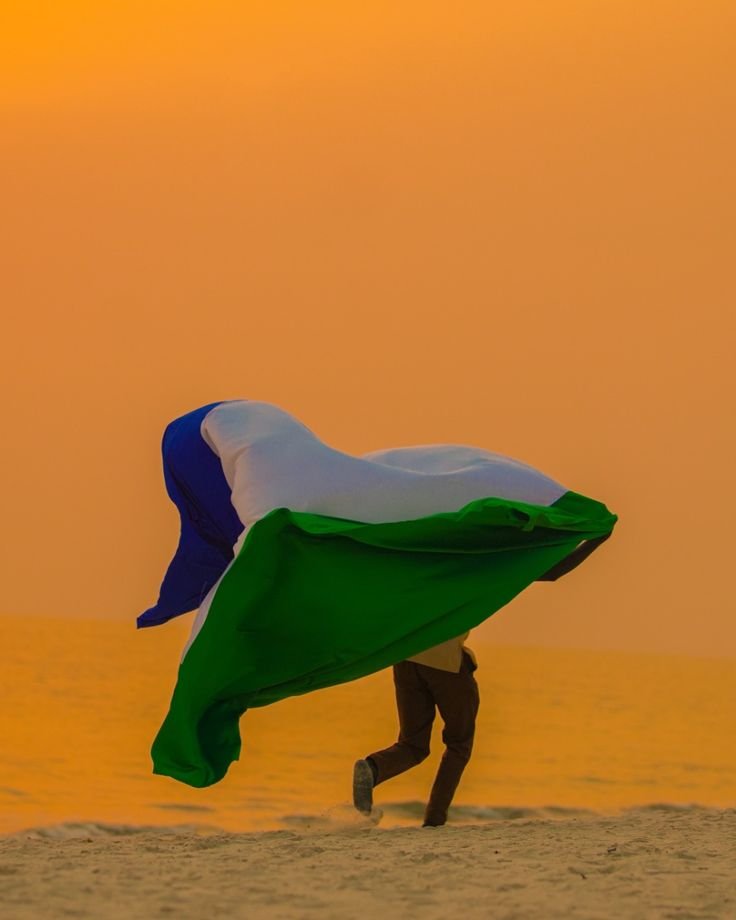
Travel Tips
Traveling to Sierra Leone in 2025 offers a rich and rewarding experience, but like any destination, it comes with its own set of considerations to ensure a safe and enjoyable trip. Below is a comprehensive guide covering essential travel tips, including safety advice, local customs, and language basics to help you navigate Sierra Leone with confidence and respect.
Safety Advice
- Exercise Caution and Stay Informed
While Sierra Leone has made significant progress since the end of its civil war in 2002, travelers are advised to exercise a high degree of caution due to occasional violent crime and the risk of civil unrest. It is wise to stay updated on local news and travel advisories before and during your trip. Avoid demonstrations or large gatherings, as these can sometimes turn unpredictable. - Protect Your Belongings
Pickpocketing and petty theft can occur, especially in crowded places like Freetown’s Big Market, popular beaches, and busy transport hubs. Always keep your valuables secure and avoid displaying expensive items such as jewelry, cameras, or smartphones openly. Use a money belt or a secure bag, and never leave belongings unattended. - Avoid Nighttime Travel
Road safety is a major concern in Sierra Leone. Many roads outside the capital are poorly maintained, with potholes, limited lighting, and unpredictable traffic behavior. Night driving is particularly hazardous due to these conditions and the presence of pedestrians, stray animals, and unmarked obstacles. It is best to avoid traveling after dark, especially outside Freetown. - Use Trusted Transportation
Opt for official taxis or pre-arranged transport rather than informal or motorcycle taxis, which can be risky. If renting a car, consider hiring a local driver familiar with the roads and driving habits. Always wear seat belts when available, and avoid overcrowded or poorly maintained vehicles. - Health Precautions
Sierra Leone is a malaria-endemic country, so taking prophylactic medication such as Doxycycline, Mefloquine, or Atovaquone/Proguanil is strongly recommended. Use mosquito nets and insect repellent to minimize bites. Ensure you are vaccinated against yellow fever (mandatory for entry), and consider other vaccinations like typhoid, hepatitis A and B, and tetanus.
Drink only bottled or boiled water, avoid ice cubes in drinks, and be cautious with street food to prevent gastrointestinal illnesses. Carry a basic first-aid kit and travel insurance that covers medical evacuation if necessary.
- Emergency Contacts
In case of emergencies, dial 999 for fire and rescue or medical emergencies, and 019 to reach the police. Familiarize yourself with the location of the nearest hospital or clinic in your area.
Local Customs
- Greetings and Respect
Sierra Leoneans are known for their warmth and hospitality. A polite greeting is important and usually involves a handshake accompanied by a smile. In more traditional or rural areas, it is respectful to address elders with titles such as “Sir” or “Madam.” When entering someone’s home, it is customary to greet everyone present. - Dress Modestly
While urban areas like Freetown are relatively relaxed, modest dress is appreciated, especially in rural communities and when visiting religious sites. Women should consider covering shoulders and knees, and men should avoid wearing shorts in formal or traditional settings. - Religious Sensitivity
Sierra Leone is one of the most religiously tolerant countries in the world, with a majority Muslim population alongside significant Christian communities. Respect for religious practices and holidays is important. Avoid discussing sensitive political or religious topics unless invited. - Photography Etiquette
Always ask permission before photographing people, particularly in villages or during cultural ceremonies. Some may be uncomfortable or consider it intrusive. It is also advisable to avoid photographing government buildings, military installations, or police personnel. - Tipping
Tipping is not mandatory but appreciated in restaurants, hotels, and for guides or drivers. A tip of 5-10% is customary if service is good.
Language Basics
- Official Language
English is the official language of Sierra Leone and is used in government, education, and formal business. Most signs and official documents are in English, making it accessible for English-speaking travelers. - Krio – The Lingua Franca
Krio is the most widely spoken language and serves as the lingua franca across Sierra Leone. It is an English-based creole language, and learning a few basic phrases can greatly enhance your interactions with locals.
- Hello – “Aw di bodi?” (How are you?)
- Thank you – “Tenki”
- Yes – “Yes” or “Yea”
- No – “No”
- Please – “Plis”
- Goodbye – “Bye-bye” or “Go well”
Using Krio greetings and expressions is appreciated and often met with smiles.
- Other Local Languages
Sierra Leone is ethnically diverse, with languages such as Mende, Temne, Limba, and Kono spoken in various regions. While you may not need to learn these languages, showing interest in local culture and language is always welcomed.
Final Tips for a Smooth Journey
Additional Practical Tips
- Currency: The local currency is the Sierra Leonean Leone (SLL). Cash is king in most places, especially outside Freetown. ATMs are limited, so carry enough cash for your needs but keep it secure.
- Water Safety: Avoid drinking tap water. Use bottled water for drinking and brushing teeth. Be cautious with ice and raw foods.
- Electrical Outlets: Sierra Leone uses British-style plug sockets (Type G), with a standard voltage of 230V and frequency of 50Hz. Carry an adapter if your devices use different plugs.
- Communication: Mobile networks are available, with several providers offering SIM cards for tourists. Internet access is generally better in Freetown and urban areas.
- Cultural Events: Participating in local festivals and ceremonies can enrich your experience. Always approach with respect and follow local guidance.
Sierra Leone is a destination of immense beauty and cultural richness, but traveling here requires thoughtful preparation. Prioritize your safety by staying alert, using trusted transportation, avoiding nighttime travel, and securing your belongings. Embrace local customs by greeting people warmly, dressing modestly, and respecting religious practices. Learning basic Krio phrases will help you connect with locals and enhance your journey.
With these travel tips in mind, you can confidently explore Sierra Leone’s stunning landscapes, vibrant cities, and welcoming communities, making your 2025 visit both safe and unforgettable.

